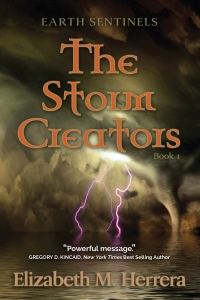The Organic Farm
On a sunny August morning, the Thompson family was busy harvesting their organic crops. Marilyn and her husband, Larry, had retired early from their stressful jobs in New York City and bought this quaint farm in Pennsylvania to get back to nature, pouring half of their life savings into the venture.
Marilyn rested while wiping the sweat from her face with a handkerchief. She stuffed it back in her pocket while looking out over the rolling hills, admiring the fertile farm beds filled with tomatoes, radishes, green beans and squash. All of this organic produce would be sold at a local farmers’ market. Bees buzzed and butterflies floated over the late blooms. She watched her 17-year-old son, Zachary, select ripe tomatoes, setting them in a wagon. He had grown a few inches taller than his father, but he had her sandy-blond hair and fine features.
Car tires scrunched over the crushed limestone driveway, coming to a stop. Dust floated around the tires. An older couple got out of the vehicle, standing side by side looking solemn.
Marilyn, Larry and Zachary waved at their neighbors, Burt and Nancy Wheeler, who returned the greeting, but remained where they stood. Something was wrong.
Larry said to his wife, “This can’t be good…looks like their best milk cow died.”
Marilyn replied, “Shhh…this might be serious. Come on.”
The Thompsons walked out of the field, passing the red barn that housed the milk cow. The chickens scratching in the yard scurried away clucking.
The neighbors met them halfway.
Larry shook the man’s hand. “Good morning.”
Burt said, “Morning. Sorry we didn’t call first, but we’ve got something important to tell you.”
“Okay…”
“This would be better sitting down.”
The Thompson family suddenly felt a sense of dread. Larry responded, “Sure, this way.” He led his neighbors through the back door of the centennial farmhouse. They entered the kitchen, taking their seats at the long plank table. Marilyn asked the neighbors if they would like something to drink, but they shook their heads.
Burt started the conversation, “We’ve been having problems with our cows, one died, and a few had stillborn calves. We heard other farmers had the same thing, so we tested our well and lake. And well…” Bert found it difficult to say the words, “The results showed toxic chemicals and methane gas.” The dairy farmer became visibly upset, his voice wavering as he said, “We’ve lived here for four generations and never had a problem with our water before they started fracking.”
“How can that be?” Marilyn asked, “They aren’t even drilling close to us!”
“Yeah…well,” answered Burt, “we did some research and found out that Pennsylvania allows horizontal drilling, so a rig can be a mile or more away, but drill right under your house without your permission, if you don’t own the mineral rights.” He rubbed his forehead, noticeably stressed. “We own ours, and told them, ‘Thanks, but no thanks.’ We didn’t want their money. The farm’s enough for us. But obviously someone near us either took the money or didn’t own the rights.”
“But where’d the chemicals come from?” Larry asked.
“The fracking water. They pump millions of gallons of water, laced with chemicals, so they can extract more gas out of the shoal. Then they have the nerve to tell us it’s all suctioned up, but common sense tells ’ya it can’t be, not all of it. And if they hit an underground stream or aquifer, the contaminated water can flow for miles.”
His wife confided, “We plan on moving our cows to my cousin’s place in Dauphin County. We can’t in good conscience sell the milk. But what’ll we do? Farming’s all we know.” She bit her bottom lip, trying not to cry.
Burt changed the subject, delicately asking the Thompsons, “Have you tested your water? I only ask because our land butts up to yours.”
The awareness that the organic farm might be ruined settled over Marilyn like a dark fog. How can we claim the produce is organic if there are chemicals in the water? How can we sell it at all? She contemplated these troubling questions before quietly saying, “We didn’t give in. We refused to let them test our land and still…” she trailed off. Zachary put his arm around his mother to comfort her.

You must be logged in to post a comment.